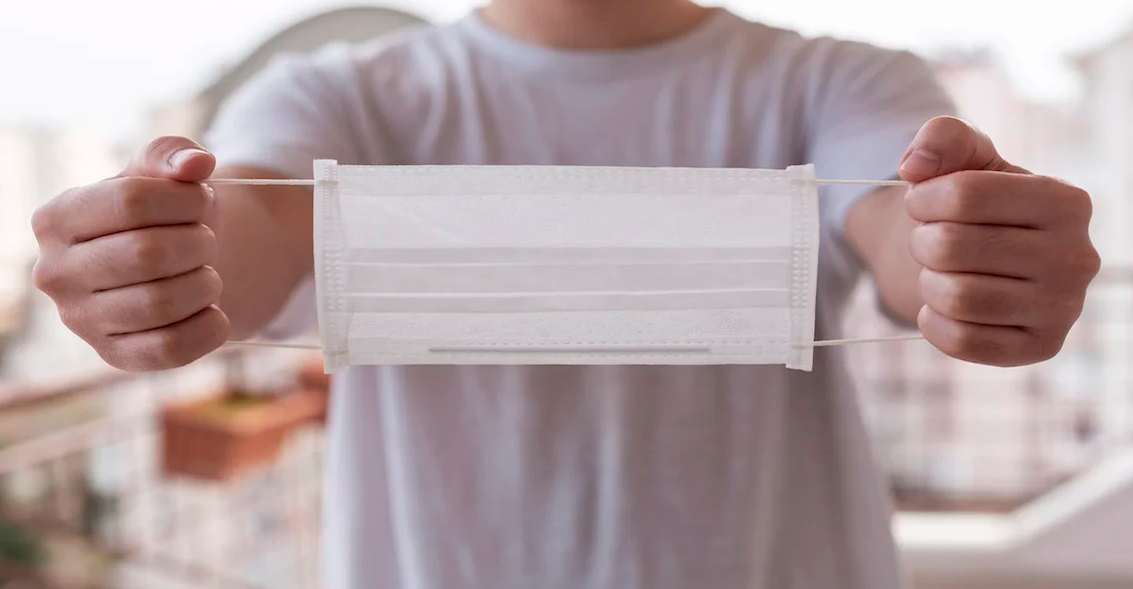
The frantic responses from American universities to the COVID-19 pandemic has transformed college from a period of excitement into a time of uncertainty, dread, and serious cognitive dissonance.
In my case, at least.
I was full of gleeful anticipation as I packed up everything and drove back to college to begin my 3rd year as a junior. I, like many other college students, looked forward to seeing my friends, commencing my studies for yet another year, and arguing about philosophy while on a caffeinated high until 3 A.M. (I’m certain that was just me.)
But I also understood that the pandemic would play a visible role in campus life for the foreseeable future. And yet, I was hoping that role would be secondary to my overall experience.
Perhaps the occasional seminar on elementary hygienic practices; or maybe weekly updates from the administration on the status of COVID’s spread among our campus community. Perhaps readily available hand sanitizer. And perhaps, even, the ability to engage in distance learning if afflicted by the virus.
But reality had other plans.
The moment I arrived on campus, I saw large orange pamphlets posted on every building with the phrase “MASKS REQUIRED” printed in bold letters. Even my residence hall for this year succumbed to such nannying with a similarly stark ultimatum: Enter with a mask or not at all. Furthermore, all students were required to obtain some form of testing before returning to campus.
Although testing is sensible, the mask mandates and the culture the message they send are not, especially for a college campus.
As the MayoClinic reported, masks can help prevent the transmission of COVID-19 from those already infected. But there’s no evidence that masks actually prevent COVID infection beyond that particular instance. Yet, masks are being exalted as the prime defense against an invisible enemy, and those who question their effectiveness are deemed insane.
But while mask mandates are ineffective safeguards against COVID, they’re quite powerful in conveying a rather sinister message: The belief that I cannot sufficiently take care of my own health without being commanded. Paternalism 101, in a sense.
A companion belief to that idea is that the only legitimate risk calculations are taken by those in authority. This belief legitimizes the invasive role of the elitist class in American society and leaves us selectively eating crumbs from the palm of their hands.
Unfortunately, this elitist mentality has spread wider than the virus. It explains why sanctimonious mobs are suing the University of North Carolina system, which oversees 16 public universities in the state. Similarly, it explains why regulation-infected California initially halted their university system’s fall classes, before defining rigid parameters in which they can continue. If a college student, like me, dares to return to normalcy and make his own risk calculations, the COVID doomsayers claim I’m endangering “society.”
But the true danger rests in the impending extinction of personal responsibility. The moment when I am deemed unable to care for myself is the moment “safety” becomes arbitrary. If I cannot maintain myself, there will eventually be nothing to maintain.
So, what is the solution? Self-interest, of course.
In a truly free society, these pandemic edicts are wholly unnecessary. In a free society, everyone’s interests are interconnected which necessitates interpersonal care. For example, if Jim provides a value to you, your self-interest compels you to ensure Jim can continue to provide that service to you. In the pandemic situation, it’s in my interests to ensure my peers, friends, and professors are healthy and able to produce value for each other, and vice versa.
And therein lies the point: I don’t need to be compelled to care for myself or my friends; human nature already urges me to do so. And the same is generally true of others, too.
If you need evidence to satisfy your cynicism, look no further than how individual business owners responded when the economy was reopened in certain states. In Georgia, for example, after Governor Kemp rightfully suspended his illogical economic deep freeze, several businesses refused to reopen. As New York Magazine reported, some businesses saw reopening as a high safety risk to their staff and customers. This is all evidence of self-interest and risk calculation independent of government prodding.
Whether you agree or not with these economic agents is irrelevant. The matter is simple: In a free society, risk is the primary mode of economic calculation. If these business owners refused to open when Kemp instituted a laissez-faire attitude, who is to say they wouldn’t close down without government interference?
We don’t need mandates to keep us safe. We—young adults especially—hold the keys of our destiny in our own hands, and colleges would do good to remember that.
Ultimately, my college woes are a smaller part of a bigger issue: How Americans should manage public health crises. The debate between individual and government management of public health issues will persist long after we’re all dust. But for the present, ask yourself one question: Do you believe you can take your own risks?
I do. And universities around American should let their students do so accordingly, or we’ll be raising a generation of wards of the state and not fully responsible, autonomous adults. That would be a pandemic of sorts all on its own.
Christian Watson is a political writer based in Georgia and host of the Pensive Politics podcast. He can be found on Twitter at @OfficialCWatson.
